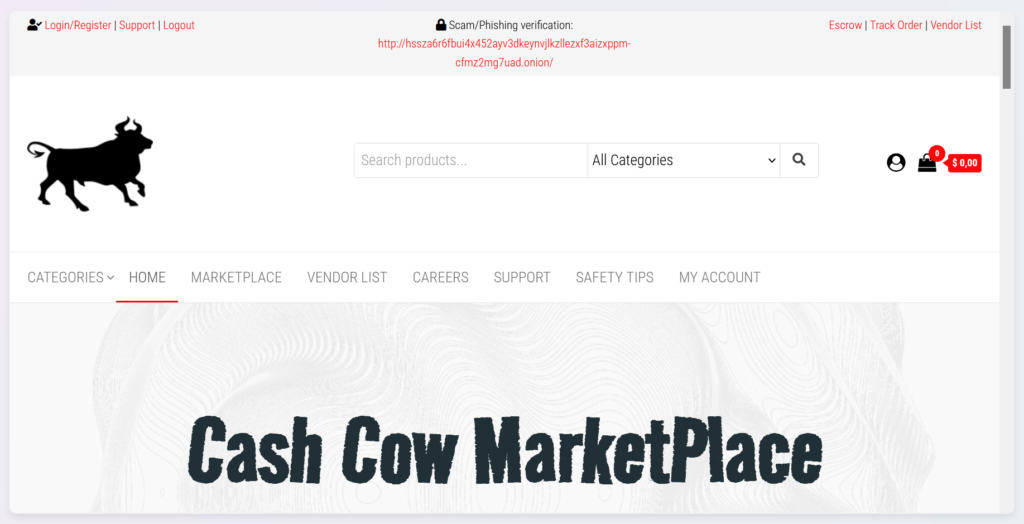Table of Contents
ToggleCash Cow – TOR Scam Report (8)
Onion Link: http://hssza6r6fbui4x452ayv3dkeynvjlkzllezxf3aizxppmcfmz2mg7uad.onion/
Scam Report Date: 2023/12/30
Client Scam Report Breakdown
Original Report Summary
A user recently submitted a scam report with the following statement: “I bought a gift card from this website and I didn’t get any orders.” This brief message indicates a potentially fraudulent transaction involving the purchase of a gift card from an unspecified website. The lack of fulfillment of the order—where the buyer did not receive the expected gift card—raises concerns about the legitimacy of the website and the transaction.
Photos

Defining Terminology and Terms
To understand the context and implications of this scam report, it is essential to define key terminology and terms related to online transactions and scams. Firstly, a gift card is a prepaid card that can be used as an alternative to cash for purchases within a particular store or related businesses. These cards are commonly used for gifting purposes or as a way to spend money online. Order fulfillment refers to the complete process from the point of sales inquiry to delivery of a product to the customer. In this case, the term implies that the website did not fulfill its obligation to deliver the purchased gift card to the buyer.
A scam is a deceptive scheme or trick used to cheat someone out of something, typically money or personal information. Online scams often involve fraudulent websites or sellers who promise goods or services that they never intend to deliver. In the context of this report, the buyer’s failure to receive the purchased gift card suggests that the website may be operating a scam, tricking users into paying for products they will never receive. Another critical term is fraudulent transaction, which refers to any transaction that is carried out with the intent to deceive. This can include the use of stolen credit card information or the creation of fake websites designed to collect payments without providing goods or services in return.
Detailed Breakdown and Implications
The brief scam report highlights a common issue faced by online shoppers: the risk of encountering fraudulent sellers or websites. When the buyer states, “I bought a gift card from this website and I didn’t get any orders,” it points to several red flags. First, the absence of a clear and detailed receipt or confirmation of purchase from the website can be indicative of a scam. Legitimate e-commerce websites typically provide immediate confirmation emails and order details after a purchase is made. The lack of such communication may suggest that the website is not genuine.
Furthermore, the buyer’s inability to receive the gift card despite making a payment is a critical indicator of a potential scam. This situation can result in financial loss and frustration for the buyer, who may have intended to use the gift card for personal purchases or as a gift for someone else. It also raises concerns about the security and trustworthiness of the website in question. Without proper mechanisms to track and report such fraudulent activities, other users may fall victim to the same scam.
In conclusion, the scam report underscores the importance of vigilance and due diligence when making online purchases. Users should ensure that they are buying from reputable and well-reviewed websites, and they should look for secure payment options and clear communication from sellers. Reporting such incidents to consumer protection agencies and online platforms can help prevent others from being scammed and can contribute to the broader effort to combat online fraud.







